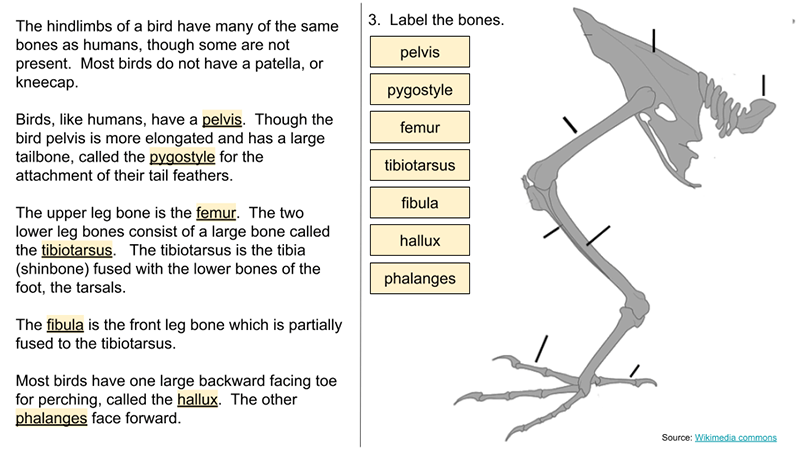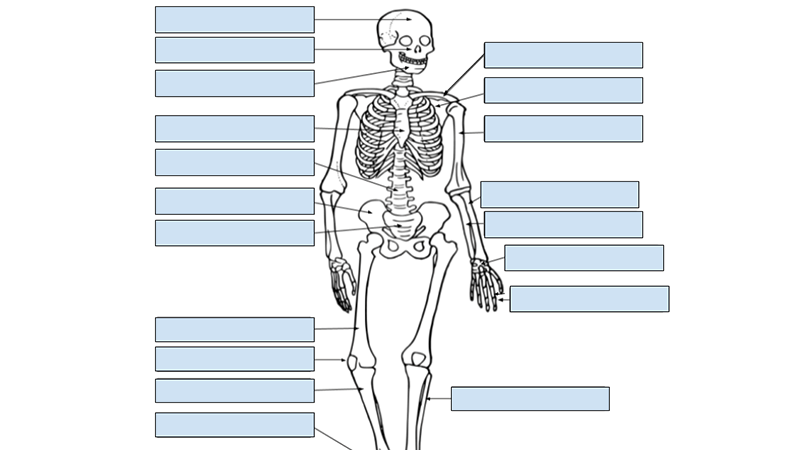Tag: bones
-
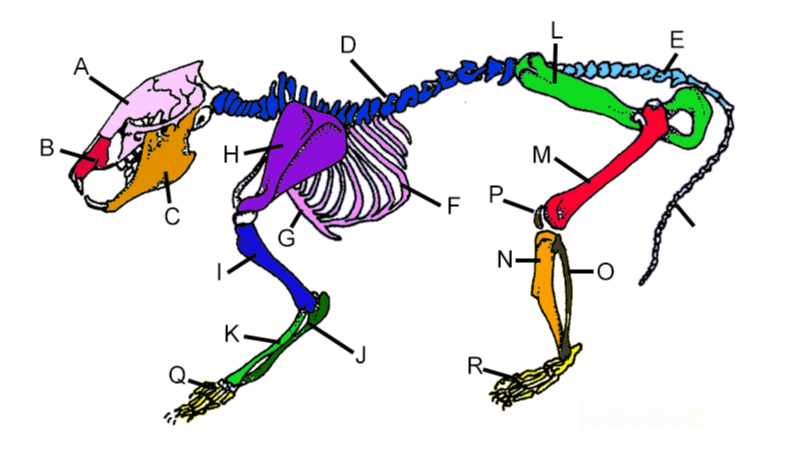
Explore the Skeleton of the Rat with Coloring
Students learn the skeletal system by coloring a diagram of a rat skeleton. Worksheet includes descriptions and locations of each of the bones of the skeleton. The rat skeleton is similar to the human skeleton!
-
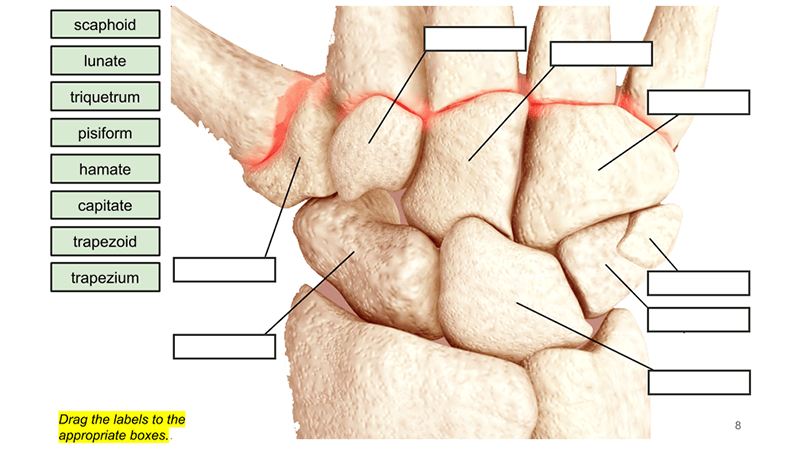
Learn the Bones of the Hand and Foot
Learn the bones of the hand and foot with this Google slides module with descriptions, mnemonics, and practice drag and drop activities.
-
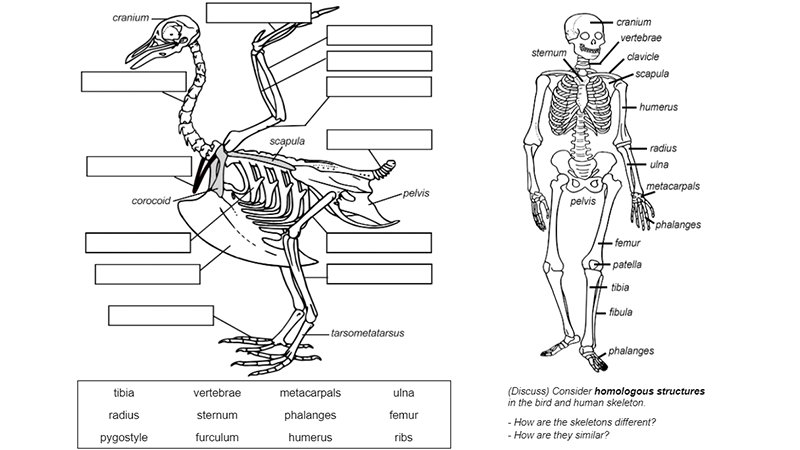
Label the Bones of a Bird and Human Skeleton
Labeling worksheet showing a bird skeleton compared to a human. Students fill in the labels using a word bank and discuss similarities to the human skeleton.
-
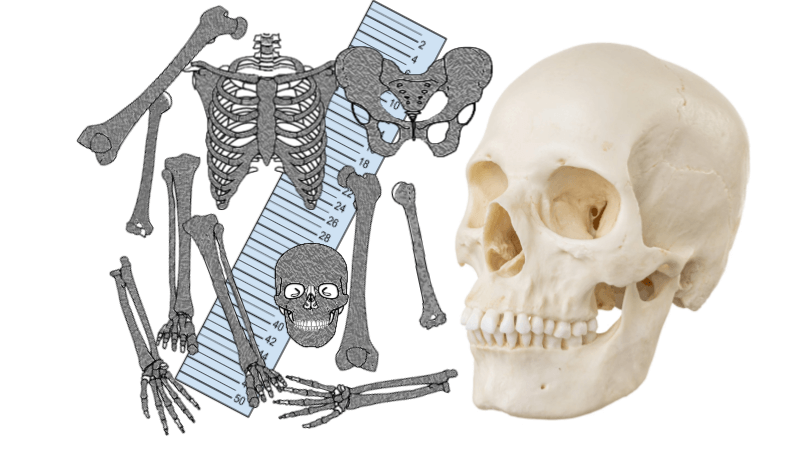
Forensics Activity: The Mystery of the Bones
Construct a skeleton from paper to model how forensic scientists use clues from the bones to determine sex, gender, age, height, and race.
-
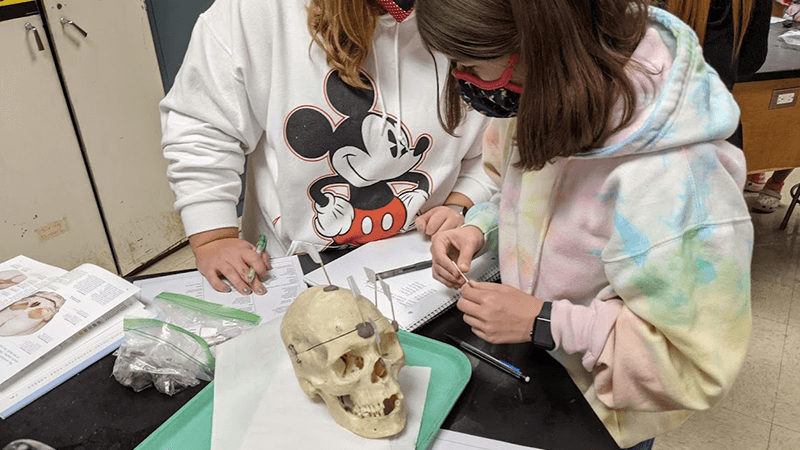
A Student’s Guide to Learning the Human Bones
Students use a lab guide to identify bones and major features. Activity is part of a unit on the skeletal system
-
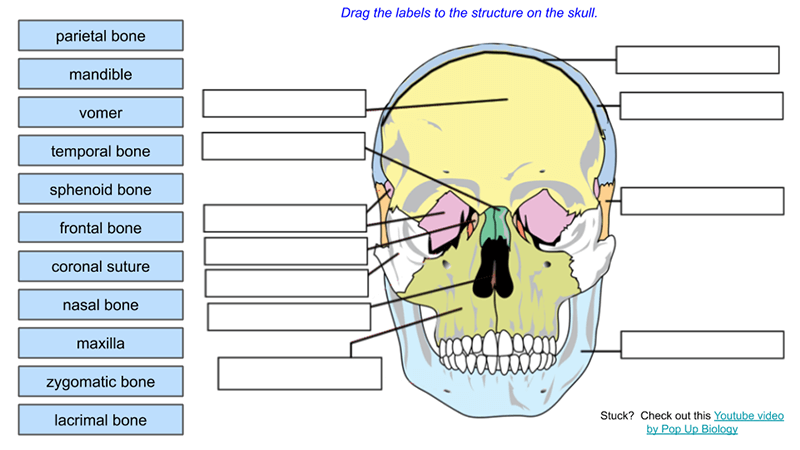
Skull Label (remote)
This activity was designed for anatomy and physiology with students working remotely during the 2020 pandemic. Students are given a short overview of the skull during virtual class and then encouraged to watch the Pop Up Biology video which explains the features of the skull (foramen, condyles, process…etc.) The activity is made on google slides…
-
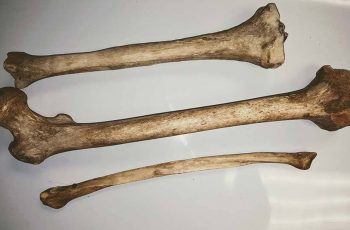
Data Analysis – Stature and Bone Length
Does the length of a person’s legs and arm bones correlate to the height of the person? The following graph shows a scatterplot of lengths of the humerus, tibia, femur and tibia. Examine the graphs shown below. What CLAIMS can be made to answer the question? Summarize the EVIDENCE shown in the graphs. Develop a…
-
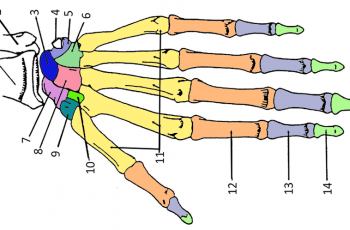
Explore Anatomy – Color the Bones of the Hand
Learning anatomy can feel daunting, but there are plenty of ways to make it more engaging and interactive. One great way to help students understand the structure of the human hand is through a hands-on (pun intended!) coloring exercise. By coloring the bones of the hand, students can reinforce their understanding of how these structures…
-

Investigation: Stride Length and Bone Lengths
This activity is intended to introduce students to spreadsheets while also reinforcing concepts learned in the unit on the skeletal system. While graphs may be easier to create using google sheets, student can still create graphs by hand using graph paper. Your class will need a set of meter sticks or rules to…
-
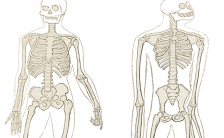
Compare a Human and Chimpanzee Skeleton
This handout can be used in discussions on the evolution of bipedalism or in any unit on the skeletal system. Students label the bones of the skeleton and make comparisons between the forelimbs, hind limbs, and pelvis. I created this handout to compliment an evolutionary lesson and video from HHMI on the “Origin of Humans”…


